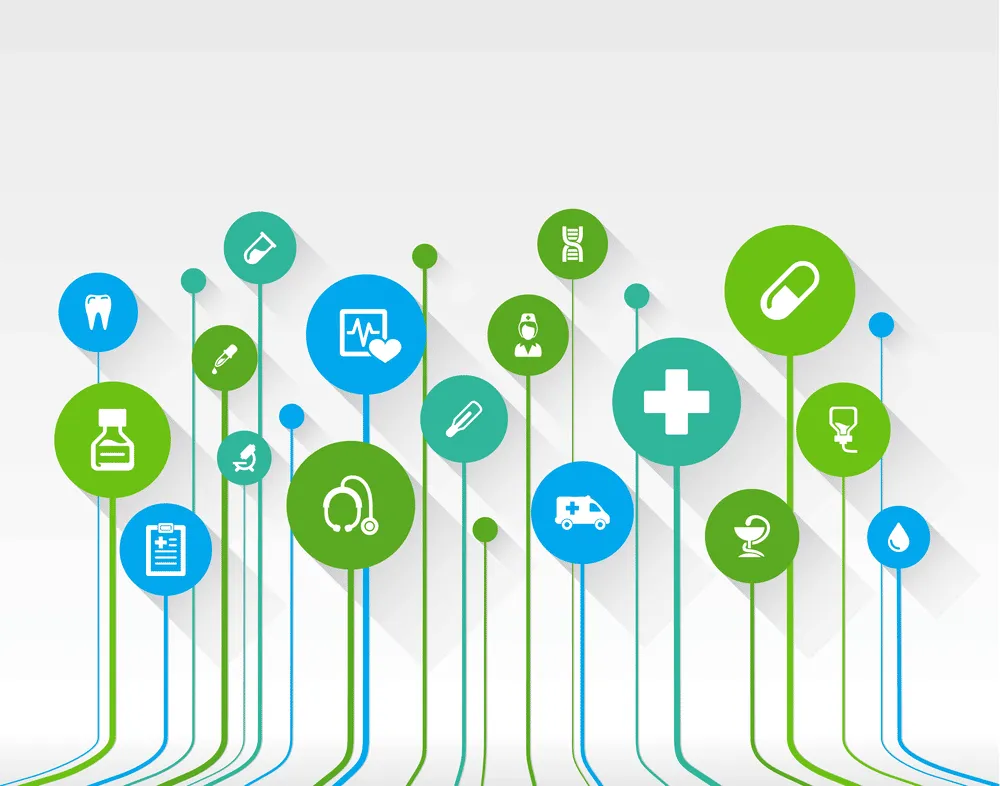Healthcare is at a crossroads. As digital records, telemedicine, and personalized treatments become the norm, the need for secure, transparent, and efficient systems has never been greater. Enter blockchain—a technology best known for powering cryptocurrencies, now making waves in the healthcare industry. But how exactly is blockchain used in healthcare, and why does it matter? Let’s explore how this groundbreaking technology is reshaping the future of medicine.
What Is Blockchain and Why Does It Matter in Healthcare?
Blockchain is a decentralized digital ledger that securely records transactions across a network of computers. Each record, or “block,” is linked to the previous one, creating an unchangeable chain of information. Unlike traditional databases, blockchain’s distributed nature makes it highly resistant to tampering and unauthorized access.
In healthcare, where sensitive data and trust are paramount, blockchain offers a powerful solution. It can help protect patient information, streamline administrative tasks, and even improve patient outcomes.
The Key Benefits of Blockchain in Healthcare
1. Enhanced Data Security and Privacy
Healthcare data breaches are alarmingly common, exposing millions of patient records each year. Blockchain’s encryption and decentralized design make it extremely difficult for hackers to alter or steal sensitive information. Every access or change to a patient’s record is logged and time-stamped, ensuring complete transparency and accountability.
2. Improved Interoperability and Data Sharing
Fragmented data systems often prevent doctors, hospitals, and patients from accessing complete medical histories. Blockchain enables secure, permissioned sharing of health records across different providers and platforms. Patients can grant access to their data as needed, empowering them to take control of their health journey.
3. Streamlined Administrative Processes
Healthcare is notorious for its paperwork and inefficiencies. Blockchain can automate processes like insurance claims, billing, and provider credentialing through smart contracts—self-executing agreements coded on the blockchain. This reduces administrative costs, speeds up approvals, and minimizes human error.
4. Counterfeit Drug Prevention and Supply Chain Transparency
Fake medicines pose a serious risk to patient safety. Blockchain can track pharmaceuticals from manufacturer to pharmacy, ensuring authenticity at every step. This transparency helps prevent counterfeit drugs from entering the supply chain and protects patients from harm.
5. Clinical Trials and Research Integrity
Clinical trials rely on accurate, tamper-proof data. Blockchain can securely record trial results, consent forms, and research protocols, making studies more transparent and trustworthy. This fosters greater collaboration and accelerates medical breakthroughs.
Real-World Applications of Blockchain in Healthcare
Patient-Centered Health Records
Imagine a world where you control your entire medical history—doctor visits, lab results, prescriptions—on your smartphone. Blockchain-powered platforms are making this a reality. With patient consent, healthcare providers can instantly access up-to-date records, improving care coordination and reducing redundant tests.
Insurance Claims and Billing
Insurance fraud and billing errors cost billions each year. Blockchain automates the claims process, verifying every step and ensuring only valid claims are paid. This not only saves money but also speeds up reimbursements for both patients and providers.
Drug Traceability and Safety
Pharmaceutical companies are using blockchain to track drugs from production to delivery. Each transaction is recorded, creating an auditable trail that regulators and consumers can trust. This is especially crucial for vaccines, specialty medicines, and controlled substances.
Secure Medical Device Management
Medical devices—like pacemakers or insulin pumps—are increasingly connected to the internet. Blockchain can securely log device data, maintenance records, and software updates, reducing the risk of tampering and cyberattacks.
Public Health and Pandemic Response
During outbreaks, rapid and accurate data sharing is vital. Blockchain can securely collect and distribute public health data, supporting contact tracing, vaccine distribution, and resource allocation while protecting individual privacy.
Overcoming Challenges: What’s Holding Blockchain Back in Healthcare?
While blockchain’s potential is immense, adoption is not without hurdles:
- Integration with Legacy Systems: Many healthcare organizations rely on outdated IT infrastructure, making integration complex.
- Regulatory Uncertainty: Laws around data privacy and blockchain use are still evolving, especially in highly regulated markets.
- Scalability: Blockchain networks can face performance issues when handling massive volumes of data.
- Education and Awareness: Healthcare professionals need training to understand and trust blockchain solutions.
Despite these challenges, pilot projects and collaborations are underway worldwide, signaling a promising future.
The Future of Blockchain in Healthcare
As blockchain technology matures, its impact on healthcare will only grow. Expect to see:
- Personalized Medicine: Secure sharing of genetic and lifestyle data will enable tailored treatments.
- Global Health Records: Cross-border data sharing will support medical tourism and global health initiatives.
- Decentralized Clinical Trials: Patients can participate in studies from anywhere, with data securely recorded and verified.
Innovative startups and established healthcare giants alike are investing in blockchain solutions, aiming to deliver safer, more efficient, and patient-centric care.
Conclusion: Embracing the Blockchain Revolution in Healthcare
Blockchain is more than just a buzzword—it’s a game-changer for healthcare. By enhancing security, improving transparency, and empowering patients, blockchain paves the way for a smarter, more connected medical ecosystem. As adoption accelerates, the benefits will ripple across the industry, ultimately leading to better outcomes for everyone.
Ready to be part of the healthcare revolution? Stay informed, ask your providers about blockchain-powered solutions, and advocate for secure, patient-first innovation in your community.






